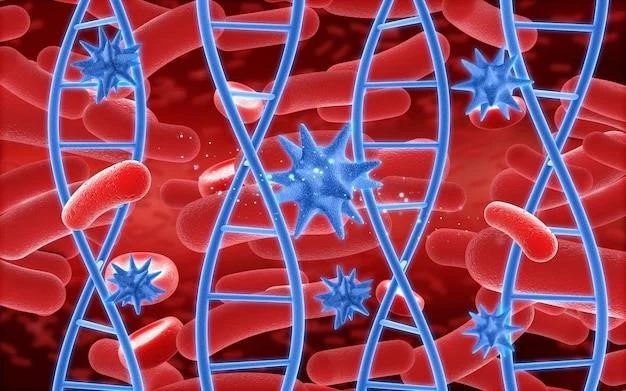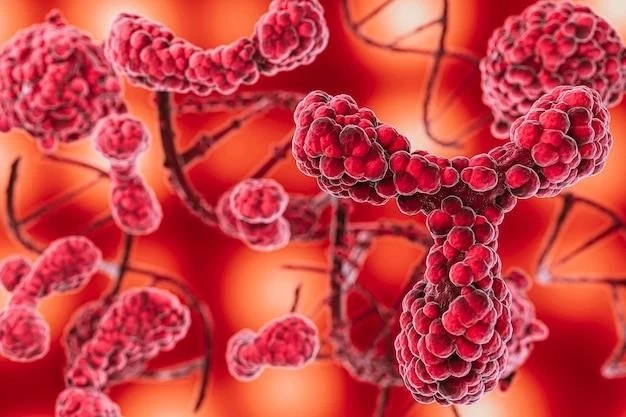Introduction to Adenosine Triphosphatase Deficiency
Adenosine Triphosphatase Deficiency is a rare genetic disorder that can lead to various complications‚ including anemia. Understanding its causes and symptoms is crucial for proper diagnosis and treatment.
Understanding the basics of Adenosine Triphosphatase (ATPase)
Adenosine Triphosphatase‚ commonly known as ATPase‚ is an essential enzyme that plays a crucial role in cellular energy metabolism. It catalyzes the hydrolysis of adenosine triphosphate (ATP) to produce energy for various cellular processes. ATPase is involved in transporting ions across cell membranes‚ muscle contraction‚ and nerve impulse transmission.
ATPase deficiency results in impaired energy production‚ impacting the function of vital cellular processes. This deficiency can lead to various health complications‚ including anemia due to decreased energy availability for red blood cell production. Understanding the fundamentals of ATPase is paramount for comprehending the mechanisms underlying Adenosine Triphosphatase Deficiency and its associated conditions.
Anemia Due to Adenosine Triphosphatase Deficiency
Adenosine Triphosphatase Deficiency can result in anemia due to disrupted red blood cell production. Understanding the causes‚ symptoms‚ diagnosis‚ and treatment of this anemia is crucial for managing patients effectively.
Causes and Symptoms of Anemia in ATPase Deficiency
Anemia in Adenosine Triphosphatase (ATPase) Deficiency arises from impaired red blood cell production due to dysfunctional ATPase enzyme activity. Symptoms include fatigue‚ weakness‚ pale skin‚ dizziness‚ and shortness of breath. The deficiency disrupts the energy supply needed for proper erythropoiesis‚ leading to low hemoglobin levels and reduced oxygen-carrying capacity in the blood.
The causes of anemia in ATPase deficiency are rooted in the enzyme’s vital role in cellular energy metabolism. Inadequate ATPase function hinders the synthesis of heme‚ a critical component of hemoglobin‚ affecting red blood cell maturation. Understanding these underlying mechanisms is essential for accurate diagnosis and tailored treatment approaches to address the anemia associated with ATPase deficiency.
Diagnosis of Anemia in ATPase Deficiency
Diagnosing anemia in Adenosine Triphosphatase (ATPase) Deficiency involves comprehensive evaluations to determine the underlying cause of low red blood cell count and hemoglobin levels. Blood tests to assess hemoglobin‚ hematocrit‚ and red blood cell indices‚ such as mean corpuscular volume‚ can indicate anemia. Additionally‚ testing for ATPase enzyme activity and genetic analysis to identify ATPase deficiency can provide a definitive diagnosis.
Since anemia in ATPase Deficiency is a result of dysfunctional cellular energy metabolism‚ a thorough understanding of the patient’s medical history‚ family history of genetic disorders‚ and any presenting symptoms is crucial for accurate diagnosis. Collaborating with hematologists and genetic specialists can aid in confirming the presence of ATPase Deficiency and devising a targeted treatment plan to address the anemia effectively.
Treatment options for Anemia in ATPase Deficiency
Treating anemia in Adenosine Triphosphatase (ATPase) Deficiency involves addressing the underlying cause of impaired red blood cell production. Management strategies may focus on boosting ATPase enzyme activity through targeted therapies‚ such as enzyme replacement therapy or gene therapy to restore normal cellular energy metabolism.
Additionally‚ managing anemia in ATPase Deficiency includes interventions to support red blood cell production‚ such as iron supplementation‚ erythropoietin therapy‚ and blood transfusions. A multidisciplinary approach involving hematologists‚ geneticists‚ and nutritionists is essential to tailor treatment regimens to the individual patient’s needs and optimize outcomes.
Genetic Factors of Adenosine Triphosphatase Deficiency
Adenosine Triphosphatase (ATPase) Deficiency is primarily caused by genetic mutations affecting the genes responsible for encoding ATPase enzymes. These genetic factors disrupt the proper functioning of ATPase‚ leading to deficiencies in cellular energy metabolism. Inherited in an autosomal recessive pattern‚ ATPase Deficiency commonly manifests in individuals with two abnormal gene copies.
Understanding the genetic basis of ATPase Deficiency is essential for diagnosing the condition and assessing the risk of transmission to offspring. Genetic testing can identify specific mutations‚ aiding in personalized treatment approaches and genetic counseling for affected individuals and their families. Research efforts focus on elucidating the intricate genetic mechanisms underlying ATPase Deficiency to develop targeted therapies and potential gene-based interventions.
Management of Anemia in Adenosine Triphosphatase Deficiency Patients
The management of anemia in Adenosine Triphosphatase (ATPase) Deficiency patients requires a comprehensive approach to address the underlying cause of impaired red blood cell production. Treatment strategies may include enhancing ATPase enzyme activity through targeted therapies‚ such as enzyme replacement or gene therapy.
Furthermore‚ managing anemia in ATPase Deficiency involves supporting red blood cell production with interventions like iron supplementation‚ erythropoietin therapy‚ and blood transfusions. Collaborating with hematologists and genetic specialists is crucial for developing personalized treatment plans tailored to each patient’s specific needs. Regular monitoring and follow-up evaluations are essential to assess treatment response and optimize outcomes for individuals affected by ATPase Deficiency-related anemia.
Research Advances in Treating Adenosine Triphosphatase Deficiency
Ongoing research efforts are dedicated to advancing the treatment of Adenosine Triphosphatase (ATPase) Deficiency‚ focusing on innovative approaches to address the underlying molecular mechanisms of the condition. Promising developments include gene therapy methods aimed at restoring ATPase enzyme function‚ potentially offering long-term benefits and improved outcomes for patients.
Furthermore‚ research in ATPase Deficiency treatment explores novel pharmacological interventions to enhance cellular energy metabolism and mitigate the impact of the deficiency on various organ systems. Collaborative studies involving multidisciplinary teams of researchers‚ clinicians‚ and geneticists aim to deepen our understanding of ATPase Deficiency pathophysiology and develop targeted therapies tailored to individual genetic profiles.

Nutritional Strategies for Adenosine Triphosphatase Deficiency-Related Anemia
Nutritional interventions play a critical role in managing Adenosine Triphosphatase (ATPase) Deficiency-related anemia by supporting red blood cell production and optimizing overall health. Adequate intake of iron-rich foods‚ such as leafy greens‚ red meat‚ and fortified cereals‚ can help address iron deficiency anemia commonly associated with ATPase Deficiency.
Moreover‚ incorporating foods rich in vitamin B12 and folate‚ such as fish‚ poultry‚ and legumes‚ can boost erythropoiesis and improve hemoglobin levels in individuals with ATPase Deficiency-related anemia. Collaborating with registered dietitians and healthcare providers can ensure personalized nutrition plans tailored to meet the specific needs of patients‚ enhancing the effectiveness of treatment strategies and promoting optimal well-being.
Improving Quality of Life for Individuals with Adenosine Triphosphatase Deficiency
Enhancing the quality of life for individuals with Adenosine Triphosphatase (ATPase) Deficiency involves a comprehensive approach that addresses both the physical and emotional well-being of patients. Implementing personalized treatment plans‚ including genetic counseling‚ regular monitoring‚ and symptom management‚ is essential in optimizing health outcomes and quality of life;
Additionally‚ providing access to supportive services‚ such as mental health resources‚ social support networks‚ and patient advocacy groups‚ can significantly impact individuals with ATPase Deficiency by fostering a sense of community and empowerment. Promoting education and awareness about the condition among healthcare providers‚ caregivers‚ and affected individuals can help ensure comprehensive care and improved quality of life for those living with ATPase Deficiency.
